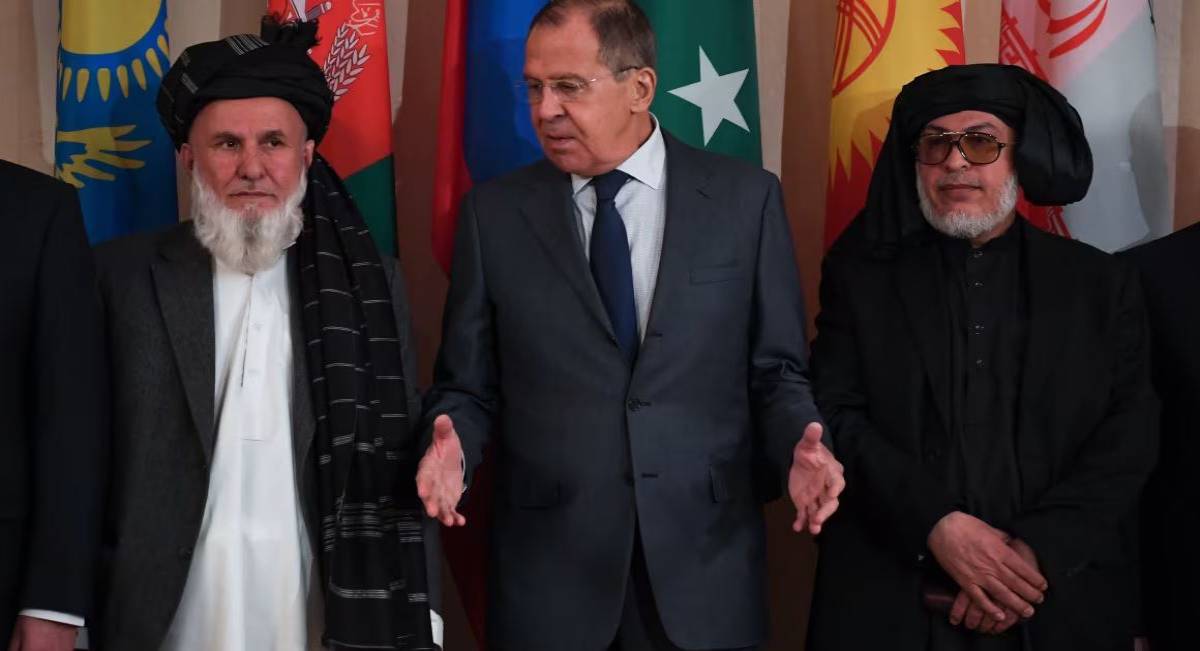931 Views
Putin’s Dangerous Taliban Gamble: Mines, Militants, and a New Cold War
The Taliban, formed in 1994 during Afghanistan's civil war with core members largely composed of mujahideen who had fought the Soviet army in the 1980s, retook power in 2021, just after the U.S. forces' defeat and withdrawal from the country. Over the past two decades, Russia’s view of the Taliban has undergone a dramatic shift. Once adversaries, Moscow now regards the group as a potential economic partner and an ally in the fight against terrorism. Russia had labeled the U.S. withdrawal a “defeat” and, ever since, has taken concrete steps toward normalizing ties with the Taliban.
With the vacuum created by the Western withdrawal, Moscow moved to establish political, economic, and security-based cooperation with the Taliban. A key turning point was Russia’s Supreme Court decision to remove the Taliban from its list of banned terrorist organizations. Following this, the Kremlin officially accepted the ambassador appointed by the Taliban government to represent Afghanistan in Moscow—an unmistakable signal of warming relations.
For Russia, the exit of Western and NATO forces from Afghanistan was a strategic opportunity to expand influence in Central Asia. The resulting security void led neighboring countries—Tajikistan, Uzbekistan, and Turkmenistan—to lean more heavily on Moscow for military and security support. Concurrently, Moscow sought to curb Western—especially American—influence in Afghanistan and assert itself as a key regional actor. Experts widely interpret this strategy as part of Russia’s broader geopolitical play to safeguard its interests and dominate Central Asia’s evolving power dynamics.
Beyond military-security dimensions, Russia aims to strengthen its regional clout through economic and diplomatic initiatives. From Moscow’s perspective, controlling Afghanistan’s political trajectory and barring Western re-entry are critical to ensuring regional stability and asserting global relevance. Strengthening its geopolitical position also unlocks new economic opportunities for Moscow in a post-Western Afghanistan.
In fall 2023, a high-ranking Russian delegation met with Taliban economic officials and expressed readiness to expand cooperation in mining, agriculture, and transportation. Both sides emphasized creating a joint intergovernmental commission to facilitate trade, transit, and investment partnerships. For Russia, access to Afghanistan’s vast natural resources—including iron ore, copper, and rare metals—is of strategic importance. Closer ties with the Taliban pave the way for Moscow to participate in large-scale mining projects and gain access to critical resources. Infrastructure ventures such as transportation networks, energy systems, and gas pipeline projects that connect the region economically may soon be within reach for Russian companies.
Another key concern for Russia is preventing the spillover of instability from Afghanistan into neighboring states and its own southern borders. Moscow views the Taliban as a potentially effective force against terrorist groups like ISIS-Khorasan. With the aim of maintaining stability in the region, Russia seeks sustained security cooperation with the Taliban to prevent a power vacuum that could nurture extremist growth. Russia’s approach includes boosting intelligence sharing and border security coordination with Afghanistan’s neighbors, establishing itself as a crisis management leader in the region.
Through counter-terrorism cooperation, the Kremlin hopes to contain instability and prevent its spread into Central Asia. From the Taliban’s perspective, gaining regional legitimacy and international recognition is a priority. By offering security guarantees—especially regarding extremist groups like ISIS-K—they aim to present themselves as a force for regional stability.
Even absent formal recognition, such collaboration could significantly shape the security landscape of Central Asia.
Kremlin’s cautious, conditional engagement with the Taliban does not imply approval of their governance model. Rather, it reflects a tactical move to manage transnational threats, expand geopolitical influence, and reshape the surrounding security environment. Russia’s long-term strategy combines economic gain, Western deterrence, and terrorism containment—all in the service of building a stable southern frontier and solidifying Moscow’s strategic foothold in Afghanistan.
*Translated by Ashraf Hemmati from the original Persian article written by Navid Daneshvar

Comment
Post a comment for this article